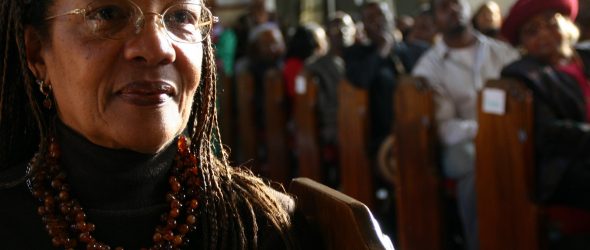Spirituality has long been a centerpiece of African-American culture. African-American communities in America throughout the 19th and 20th Centuries have been pulled together, wrapped around local Christian churches, and knit together by a centrifugal force-like drive created by common beliefs.
Some would, accurately, attribute this to the loss and deep abuse received in the throes of slavery. The African-American Christian church is often seen by its members as a force to draw people together. God is considered to be the spiritual father and the congregations his sons and daughters. That kinship role has underscored it for hundreds of years.
Perhaps secondarily, the African-American Christian community views God as its savior both spiritually and physically, as God was seen to be the redeemer who would help slaves escape their plantations and find their way to freedom. Religious gatherings were places where slaves could find spiritual respite and did often foment uprisings. Religious expression in these gatherings was the slaves’ souls’ food. There is a strong relationship between faith and freedom that continues to embed and permeate the African-American church to this day.
Contemporary African-American communities often view themselves as underprivileged or unequally burdened by society. This devotion to a religion of rescue and the pastors that espouse and preach it are massive components of African-American communities in America today.
The African-American community has also viewed the church as a means of empowerment in terms of social, spiritual and political matters. Churches have long been the voice of the African-American community, providing a platform for exposition about the injustices felt by the entire community. African-American preachers are at times seen as Moses types, standing up for their congregations and communities from Main Street to Pennsylvania Avenue.
Historically, churches were also the places where African-American were taught when they were not permitted an education. Life in the segregated United States left African-Americans with a sense of emptiness as their communities were void of a way to participate in society outside their walls. These were the places where people married, dedicated their children, were baptized, had the right to vote on congregational matters and install their own leadership. During segregation and beyond, these congregations have served as microcosms of African-American communities.
In today’s society, the level of participation in many black congregations has dwindled, largely due to the lack of African-American youth who once lined the pews during the days of social injustice in America. While many African-American congregations remain stocked with worshipers, the role of these congregations in the lives of African-American youth has faded. There are several possible reasons for this, not the least of which is the lack of family-centered values in African-American America. This is both a social and political issue as the bulk of African-American identify as democrats. The Democrat Party has largely disengaged itself from the core family values espoused by a majority of Americans until the late 1960s. Whereas Democrats have sought to rewrite the importance of the traditional family, Republicans have embraced the continuance of Judeo-Christian values prominently installed in American society from its inception. These values dovetail with the values of family, faith and community that once were the hallmarks of African-American America.
Additionally, Republicans hold to values such as the right-to-life of the unborn, limited government and shrinking the government’s role in social programs such as the Medicaid and welfare systems. Though much has changed, these values are identical to the original values held by African-American communities. The escaping slave was finding his own way out of oppression, relying on abolitionists to help them find their way to freedom. Today, the African-American community has aligned itself with a decidedly different way: social welfare programs directed by the government and paid for by American taxpayers. While the Republican Party recognizes the need for limited government assistance and control, it places more importance on the role of the individual, the family, churches and non-governmental organizations to meet the same needs.
The right-to-life issue is also one deeply entrenched in African-American communities. Their democrat leanings bear out mostly pro-abortion opinions; but the right to life of every individual is steeped into the beginnings of African-American communities perhaps more than any other value. When the United States Constitution did not consider African-Americans as fully human, their communities fought back against an egregious injustice. Today, the value of life once held by African-Americans is seen almost entirely in the Republican Party.
